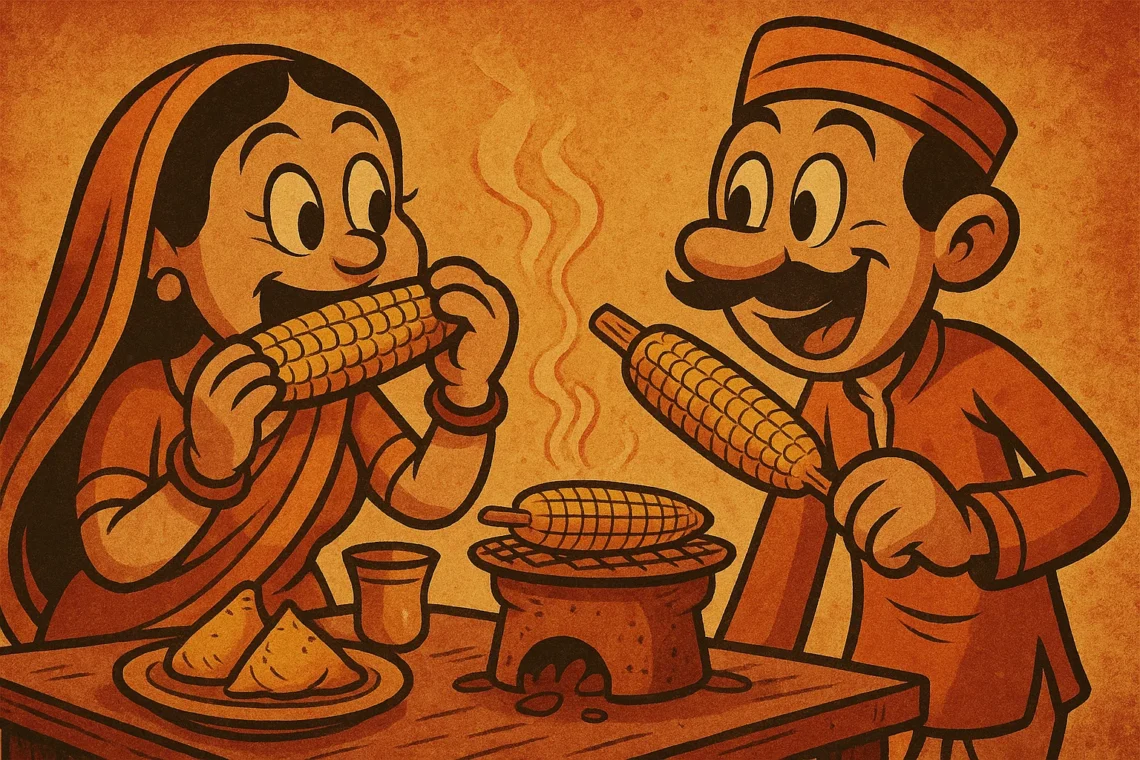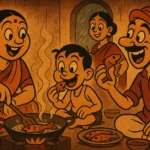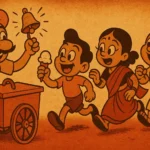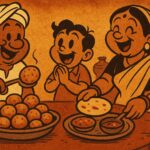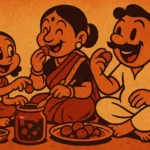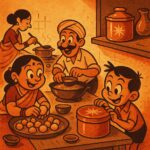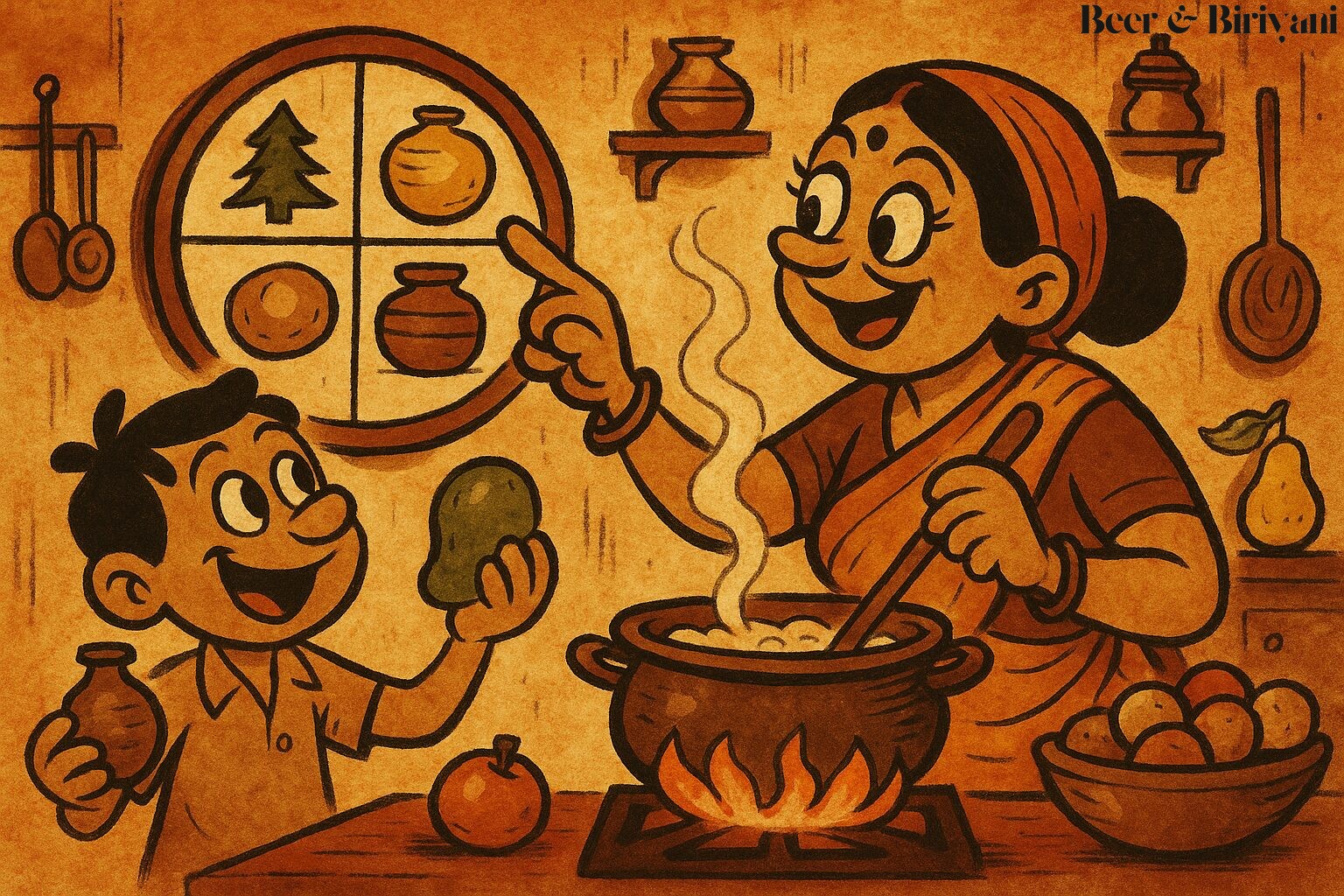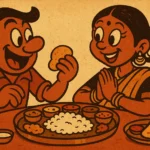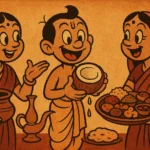Every year, like clockwork, the skies over Mumbai would crack open sometime in June, and with that first thunderclap came the unofficial beginning of bhutta season. That was our sign. Not a calendar date, not a weather app notification—just the scent of wet earth and smoke. Monsoon wasn’t monsoon until the bhutta cart rolled into our lane, wooden wheels creaking, a heap of green corn husks peeking out like messy hair from a wool cap.
As a kid, the sight of the vendor setting up his tiny charcoal grill outside the colony gate was enough to send us into a frenzy. We’d dig into the kitchen drawers for loose change, pool our coins like it was a collective mission, and run down barefoot, ignoring the puddles and aunties shouting, “Slippers pehno!” The bhutta guy didn’t talk much. He didn’t need to. One nod, and he’d start working on your corn like he was conducting a ritual—husk peeled halfway, corn kissed by fire, the occasional crackle as kernels blistered in the flame.
The Smoky Alchemy of Monsoon
There was something spiritual about watching it roast. No seasoning yet—just corn and fire. He’d turn it with practiced flicks of the wrist, fingers dancing dangerously close to the coals. There was no clock, no timer. He just knew when it was ready. And then came the magic: the masala rub. A half-cut lime dunked in a fiery blend of red chili, salt, and kala namak. He’d rub it all over the corn with the seriousness of a man sketching constellations on a sacred relic.
The first bite? It was chaos and comfort all at once. The smokiness hit first, then the heat of the chili, then the sudden citrus kick of lime, and finally the sweetness of the corn itself—warm, yielding, slightly chewy. No fancy seasoning, no butter, no grill marks arranged by a Michelin chef. Just raw, honest flavor. The kind you felt in your jaw and behind your eyes. You never ate bhutta politely. It was messy, loud, and completely communal. You fought for the blackened kernels, avoided the awkward middle cob that never cooked fully, and chewed till your lips burned.
Bhutta Politics and Rainy Day Economics
Every colony had its bhutta alliances. Some vendors were loyalists, showing up year after year, knowing your preferred level of charring. Others were seasonal drifters, whose cobs were too raw or too small, and earned only brief trial runs. Prices were always up for negotiation. “Pachaas ka? Bhaiya, kal toh chalis mein diya tha!”—a lie, probably, but bargaining was half the joy. If you paid full price, were you even from the neighborhood?
Rain was never an inconvenience during bhutta season. It was a backdrop. You’d eat under broken umbrellas, balancing cobs with one hand and plastic bags with the other. Thunder would clap, and someone would yell, “Perfect weather, na?” And everyone would nod, mouths full, eyes watering from spice.
Across Oceans, Across Kitchens
When I moved to Austin, I tried to replicate the bhutta experience. Bought corn on the cob from a farmer’s market. Charred it on the stove, stood there in my kitchen, letting the smoke fog up my rental apartment. I had all the ingredients. Lime, red chili, salt. But something was missing. The fire was too controlled. The corn too sweet. The silence too loud.
Bhutta isn’t just about the corn. It’s about the timing. The smell of monsoon on pavement. The sound of kids arguing over whose turn it is. The anticipation of watching something become delicious with almost no tools. You can’t recreate that with a gas stove and Spotify in the background. You need the rain. You need the chaos. You need home.
Why the First Bite Always Wins
Even today, whenever I visit Mumbai during the rains, I hunt down a bhutta cart before I meet relatives. Priorities, you know. I’ll take the first bite and close my eyes—not out of reverence, but because it immediately pulls me back. To colony gates and damp evenings. To plastic stools and drippy umbrellas. To that specific kind of hunger that only exists when the skies are grey and your hands are stained red with spice.
Because the first bite of bhutta isn’t just taste—it’s memory, smoke, and season. It’s the edible sound of rain hitting a tin roof. And no matter how far you go, that flavor never forgets your address.
Born in Mumbai, now stir-frying feelings in Texas. Writes about food, memory, and the messy magic in between — mostly to stay hungry, sometimes just to stay sane.

